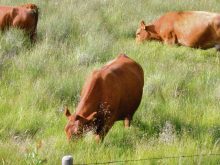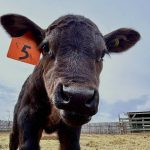Glacier FarmMedia—The federal government should re-instate efficacy testing for non-fertilizer supplements, says the National Farmers Union.
The current system, where it’s unknown if products work or not, is a cost and a risk for Canadian growers, the NFU says in a report published Oct. 21.
“’Farmer buy-and-try’ should no longer be the norm for non-fertilizer supplements,” said James Hannay, an NFU policy analyst.
“Farmers should not bear the costs of testing non-fertilizer supplements, nor can farmers deliver statistically significant results to prove that they work.”
Read Also

Future of Food conference underscores need for unity in agriculture sector
Canada’s agriculture sector must work together for success — that was the message of the day at the 2026 Future of Food Conference in Ottawa.
The NFU report comes at a time when hundreds of novel supplements are now available to Canadian producers.
There are bio-stimulants, bio-fertilizers, seaweed extracts, humic acids and many other products on the market, with more being introduced every month.
Along with the hundreds of products, there are dozens of claims on the benefits of fertilizer supplements.
“Biologicals like nitrogen-fixing bacteria can … reduce the need for applied N fertilizer without reducing yields, a solution that can help farmers with their productivity and sustainability goals,” says the website of one firm, promoting its bio-fertilizer.
It’s difficult for farmers to make sense of these claims and all the noise.
Prior to 2013, the Canadian Food Inspection Agency tested fertilizer supplements to check their efficacy, and the NFU is calling on the feds to restore those regulations.
“Given that supplements can have multiple active ingredients and modes of action, they are best defined based on their claimed benefits to agriculture; it is therefore essential that these claims be tested and the data be made publicly available so that farmers can make informed choices,” the NFU says in a summary of its report.
There is testing and publicly available data on the efficacy of fertilizer supplements, but producers do have to search for the results.
For instance, the Western Applied Research Corporation (WARC), a non-profit in Saskatchewan, has tested nitrogen-fixing biological products and their efficacy on spring wheat. The results are available on the WARC website.
Manitoba Pulse & Soybean Growers has also looked at the efficacy of biological products as part of its on-farm research network. Those results have been presented publicly and can be found on the MPSG website.
So, efficacy testing of fertilizer supplements is happening in Canada, but the CFIA isn’t leading the charge.
The NFU argues that handing this responsibility back to the CFIA will actually be helpful for the supplements industry.
“Farmers will have independent validation and quantification of claimed benefits, enabling them to … purchase products with confidence,” the NFU says.
“Non-performing products will be removed from the marketplace, increasing trust in the entire supplements sector.”
The NFU is hoping other farm groups will join the effort to restore efficacy testing in Canada. It is hoping that the program will be included in the 2025 federal budget.
















